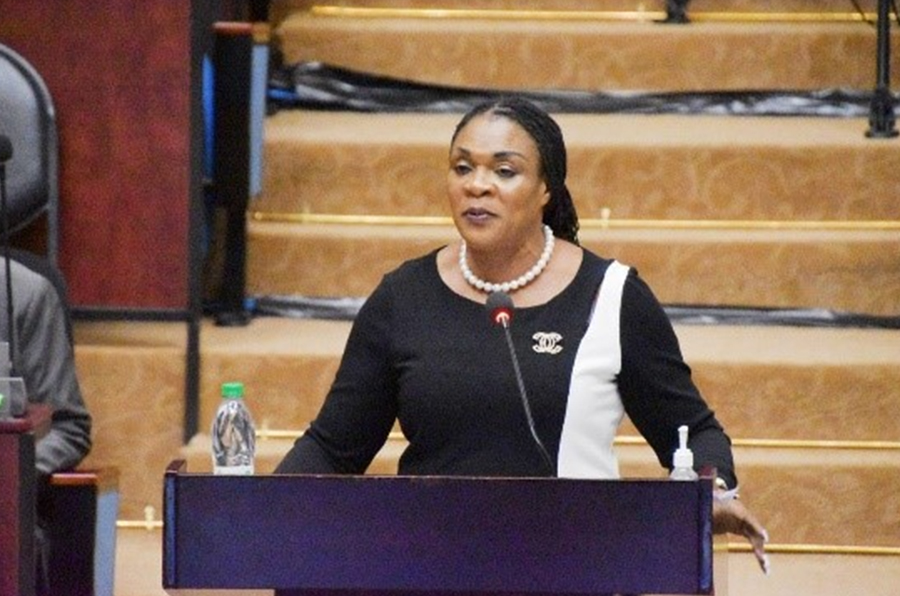By Joseph Allen
Following years of poor Mathematics grades at the National Grade Six and Caribbean Secondary Edu-cation Certificate examinations, the Ministry of Edu-cation has proposed extra ‘compulsory’ study hours, among other remedies.
Speaking at the commissioning of the Victoria Lily Primary School at Tus-chen, East Bank Essequibo, President, Irfaan Ali acknowledged that his government is very concerned and said that there will be a more targeted approach to the subject, as the poor performance cannot continue.
“We are all very concerned about the performance in mathematics and we are not a government that will hide from the challenge. Because of our concern about our performance in mathematics, I had some initial conversations with Minister of Education, Priya Manickchand, and I’m of the view that perhaps we need to in a much-targeted manner, [to] create additional hours for mathematics in the secondary school system, especially at the levels of the exam. Additional compulsory hours.”
Statistics show that the students who took the Caribbean Secondary Edu-cation Certificate (CSEC) Mathematics Examination from 2015 to 2023, had a less than 50% pass rate.
In 2015, 45.07% of students who wrote the exams had gained a pass grade, while in 2016, only 38.37% of students taking the same exam gained pass grades.
In 2017, it was 39.23%, and in both 2018 and in 2019, it was 43%. While in 2020 the pass rate was 39.43%.
The pass rate recorded in 2021 was 31.6%, and in 2022, 34.26% was recorded. Finally, in 2023, 39.87% of students received a pass grade of between 1 to 3.
The President insisted that these results remain unacceptable and must not continue.
“We cannot continue with existing pass grades in Mathematics. It is unacceptable and we must change it and will change it”, he declared.
Given the issue at hand, Ali disclosed that in two weeks, the education minister will come up with a comprehensive plan to tackle the issue.
“We are going to see in the next two weeks, the Ministry having a comprehensive strategy to address the issue of mathematics.”
This plan, he said, will see the introduction of artificial intelligence.
“And for us also to move to see what’s an available tool in terms of artificial intelligence [AI] and to incorporate AI into the delivery of learning outcomes for mathematics.”
The full details of the plan are expected to be delivered as the new school term progresses.
Meanwhile, Stabroek News spoke to General Secretary of the Guyana Teachers’ Union (GTU) and Shadow Minister of Education, Coretta McDonald, on the very same issue and she concurred that the issue must be addressed.
As such, McDonald proposed a two-fold remedy. She proposed that if the result is the change, then the teachers must first have the full support of the Ministry and there must be a reduction in the class size.
“Where we have all of those large classes, we have to ensure that those classes are brought down to a size a teacher can control, especially when it comes to Mathematics. So, if we have let’s say a grade nine [Form 3] with 25 students, we need to cut that class into two or maybe three, so that we will be able to work with those students who are weak. Give them the type of attention they need”, she said.
She added that this will result in the grading of the students, which is seen as humiliating to the students, but has to happen to ensure that teachers work with students at various levels.
“While we are looking at not humiliating the children, we are failing them. So, if we allow the high flyers to be in one grouping and then we put the average students in another grouping and the not-so-average in another grouping, then we will be able to work with them at their own pace.”
McDonald explained that there is a psychological aspect of things where students will be among their peers who are at a similar pace so then they will feel like they are not alone and it gives a teacher a better understanding of how to deal with the current students they are working with.
She however added that this will mean the need for additional and specialised teachers. Also, the resources such as materials used to enhance learning will also be needed since innovative ways of teaching for the various classes will be a feature.
The General Secretary pointed out the need for diagnostics to be done to ascertain where the students are and that change will not happen overnight.
“In grade seven we have to do diagnostics to sort out students and then we plan. This is not something that can happen overnight. This will have to be a work in progress.”
Regarding the second aspect of dealing with the issue, she said that teachers will have to do more practical work and cut down on some hours of teaching from other subjects.
“The other thing that we will have to do is to ensure that more practical work is done with our students. You see math is not a subject where you can decide you just go to the chalkboard and write or you send them to read something. Math is what you have to practice all the time, so the extra hours would mean that we might very well have to cut down on some of the other subjects that we have in the timetable and concentrate on the core students until we get to grade nine and then take it from there. By then, we should have a clear understanding of what we have as it relates to math.”
McDonald averred that only by using this strategy that a change will be observed over time.





